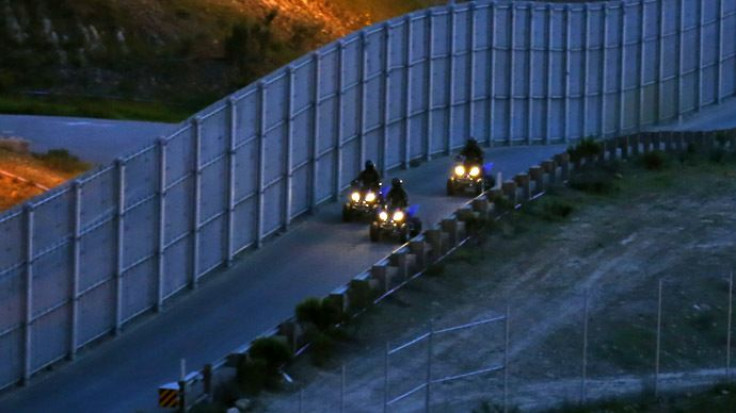
Today, Sens. Bob Corker (R-Tenn.) and John Hoeven (R-N.D.) are expected to propose a new amendment to the immigration reform bill which would double the number of border guards to 40,000, require 350 extra miles of fencing to be built along the US-Mexico border, and allot $3.2 billion in funding for drone aircraft and other surveillance equipment to detect illegal border crossings. The amendment has been received as a measure which could rally further bipartisan support for the bill, as many Senate Republicans had long demanded greater border surveillance, fencing and policing be part of it. Senator Lindsey Graham (R-S.C.), one of the "Gang of Eight" senators who wrote the original bill, said approvingly that the amendment would mean "a border surge", adding, "We've practically militarized the border."
Senator Chuck Schumer (D-NY), perhaps the most influential "Gang of Eight" Democrat, said the 20,000 extra border guards would constitute a "virtual human fence".
"This border surge is breathtaking in its size and scope," said Schumer, adding that the amendment would "deploy an unprecedented number of boots on the ground and drones in the air...We are on the verge of a huge breakthrough. There was a group of colleagues who were inclined to vote for the bill but first wanted to see stronger border controls -- that make sense."
Senator Mark Kirk (R-Ill.) said on Thursday he was ready to drop his opposition to the bill in light of the "border surge". Senator Marco Rubio (R-Fla.), another "Gang of Eight" member who had ruffled feathers among the bipartisan team for saying that he would not vote for the bill unless it included further border-security provisions, spoke in favor of the amendment on Thursday as well.
But the increased militarization of the border called for by the bill may not drastically reduce the numbers of people who try to illegally cross, though it will certainly make their trip a much more dangerous one, says Adam Isacson, a regional security policy expert at the Washington Office on Latin America.
Will border deaths increase? "Almost a certainty," Isacson told the Latin Times. "The overall number may not grow. It may stay the same or go up very slightly. But as a percentage of those attempting the journey, it will shoot up. The journey will be so much more treacherous that the portion of those who attempt it and die will grow."
If he turns out to be right, it will hold with a trend which corresponds greater militarization of the border to more deaths among those who try to cross it illegally. A report released June 5 by the Binational Migration Institute at the University of Arizona found that death rates during migration in Southern Arizona had increased exponentially since the early 2000s, even as overall numbers of illegal border crossings went down. As border enforcement ramps up, migrants make their way across the border via more remote, rugged areas where they're more likely to evade authorities but also more likely to perish en route.
Mexicans who in the past might have tried to sneak into the US are staying home in greater numbers. Even as the United States' economy continues to show sluggish growth, Mexico's economy has been strengthening and is expected to continue to do so. Mexicans are having fewer children, meaning they're more likely to stick around. And the northern border states are largely controlled by drug cartels. Many Mexican youths who might have tried to come work without papers in the US before are thinking twice about exposing themselves to the risks the cartels pose. The reform bill, if passed, could also give hundreds of thousands of Mexicans a legal mode of entry with new visas for temporary workers.
Which means those who try to cross illegally will be more determined and, in some cases, more desperate than in the past. Already, increasingly, those apprehended come from Central American countries racked by gang violence and corruption. Many others are Mexicans who have already been deported and are trying to reenter -- in many cases, because they have children or other familial ties in the United States. These two groups are especially determined to get across. The Center for Investigative Reporting says that out of the 364,768 apprehensions made by the US Border Patrol in 2012, 100,735 had already been caught at least twice.
Isacson believes the most persistent will keep trying their luck, even in the face of the "border surge".
Not all conservatives are sold on the amendment. Republican Senator Jeff Sessions of Alaska said this morning that it wouldn't be enough to win his support for the bill.
"[I]f you're holding a bucket of water, and it's got a bunch of holes in it, and you close one of the holes, all the water's still gonna run out of the bucket," Sessions said on the Senate floor. "There are other problems with the legislation."
© 2024 Latin Times. All rights reserved. Do not reproduce without permission.